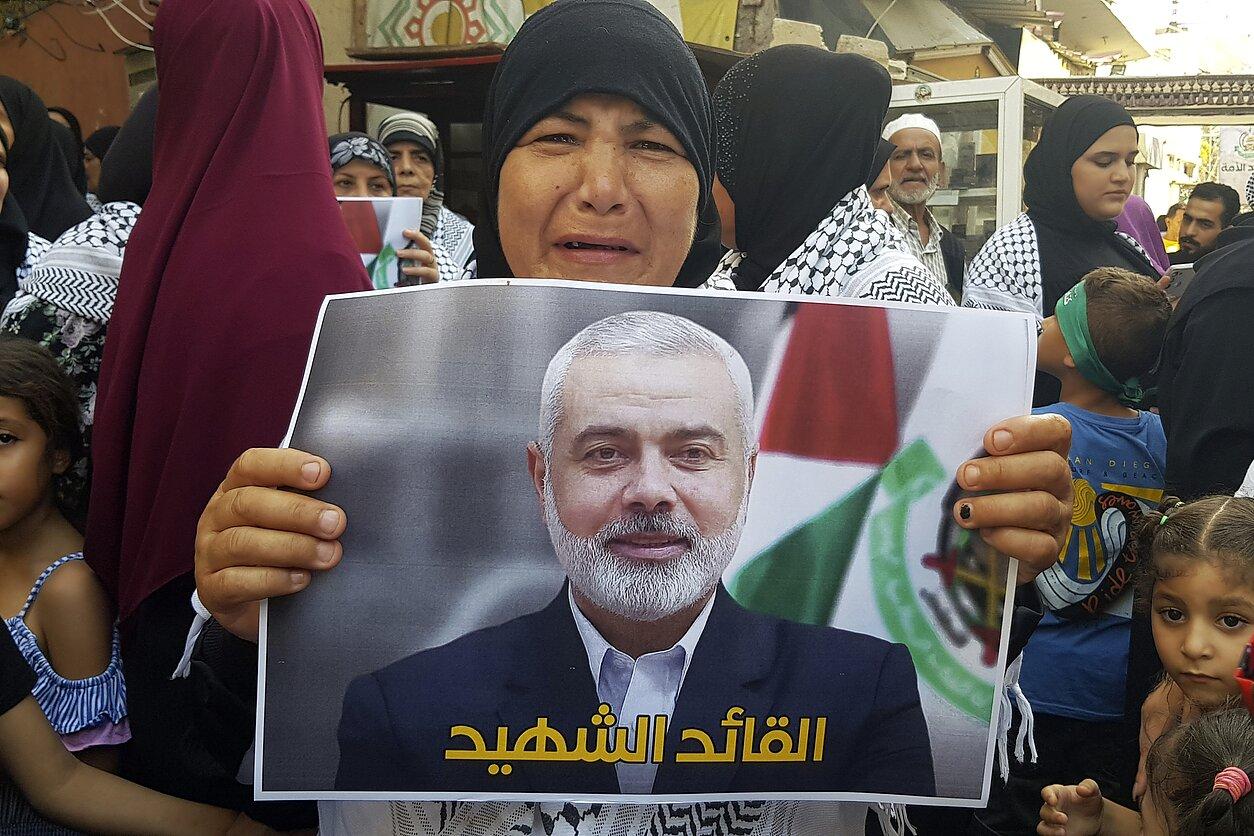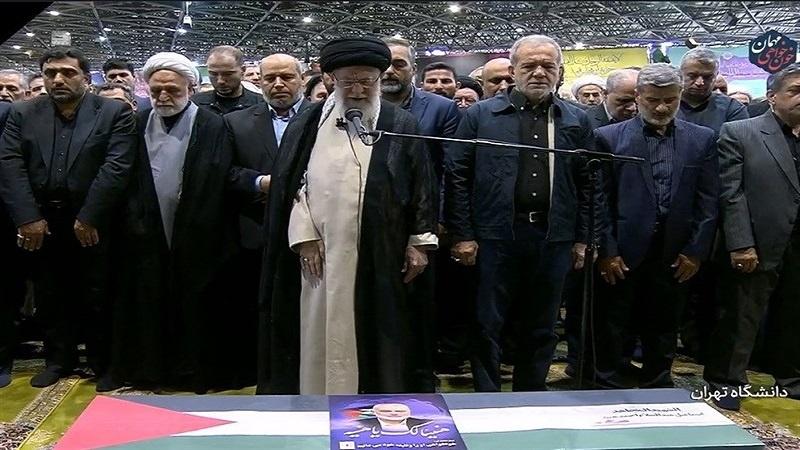Israel's new strategy yields results Iran’s vulnerability exposed
Various media outlets and experts are still discussing the consequences of the assassination of Hamas Political Bureau's Chief Ismail Haniyeh.
According to the Israeli newspaper Jerusalem Post, Iranian authorities have carried out dozens of arrests following the killing of Haniyeh.
Two sources in an interview with The New York Times (NYT) claim that, according to Iranian authorities, the operatives from Mossad are still in the country, and the authorities are conducting operations to find them.
According to NYT, Iran has arrested dozens of people in its search for information related to the assassination of Haniyeh. Among those detained are senior intelligence officers, military personnel, and staff from the hotel where Haniyeh was staying and where he was later killed.
The investigation is being conducted by a specialized intelligence unit of the Islamic Revolutionary Guard Corps (IRGC).

On August 1, the Israeli military also claimed that three weeks ago they used a special bunker-buster bomb to kill Mohammed Deif, the head of Hamas's military wing. If true, this would represent a simultaneous strike against both the military and political wings of the organization, aiming to disrupt and disorganize it.
On July 30, a missile strike in Beirut killed Fuad Shukr, the head of Hezbollah's military staff and the second-in-command of the organization. Hezbollah in Lebanon, Hamas, the Assad regime in Syria, various Iraqi militia groups, and the Yemeni Houthis form the so-called "Axis of Resistance"—an Iran-backed bloc engaged in military conflict with Israel and its ally, the US, for dominance in the Middle East.
Haniyeh, who had traveled to Iran for the inauguration of new Iranian President Masoud Pezeshkian, was killed on July 31. While initial reports suggested he died in an Israeli airstrike, sources cited by NYT have confirmed that he was actually killed by a bomb that was secretly smuggled into the hotel where he was staying.
Despite international accusations, Israel has not claimed responsibility for the assassination of Haniyeh. Analysts observing the situation note that the killing of the Hamas leader in Iran, particularly in the Iranian capital and right after the inauguration ceremony of the new president, could deliver a significant blow to the Iranian authorities.
It signals to militant leaders that being in Iran no longer makes them untouchable. More importantly, these Israeli strikes threaten the regime in power in Iran.
"The growing realization that Iran cannot protect itself or its key allies could be fatal for the Iranian authorities, as it essentially signals to its enemies that if they can't overthrow the Islamic Republic, they can at least decapitate it," Ali Vaez, Crisis Group's Iran Project Director, said in an interview with the NYT.
"This breach in Iran's security system will necessitate a range of policies and strategies. This could involve arrests of spies if there was infiltration, retaliation if the operation was conducted from outside the country, or a combination of both," Sasan Karimi, a political analyst from Tehran, told NYT.
Currently, Iranian investigators are reviewing several months' worth of surveillance footage from the guesthouse and examining records of everyone who entered the premises. Sources told NYT that Iran is convinced the assassins are still in the country, and authorities are waiting to capture and arrest them.
An anonymous IRGC official also informed NYT that, while there is no information on arrests, security protocols for high-ranking officials have been completely reviewed over the past two days. Some officials have been relocated, and the electronic equipment of others has been replaced.

Israeli expert on Middle Eastern Studies and former Knesset member Ksenia Svetlova reports that Yusuf Pezeshkian, the son of the newly elected president of Iran, has stated that Iran’s main objectives are not to wage war against Israel but to combat poverty, inequality, and corruption within its own ruling structures.
Svetlova points out that such statements are unlikely to be well-received by the leaders of the IRGC, who not only own hotel complexes but also numerous factories, businesses, retail chains, construction firms, and more. It is far more advantageous for them to continue the ongoing struggle with Israel while comfortably siphoning off the budget.
Israeli political analhyst David Weinberg suggests that the strikes on July 30-31 might mark the beginning of a shift for Israeli politicians, freeing them from the "burdensome military and diplomatic constraints" imposed on them in Washington.
He noted that by endangering the leaders of militant groups fighting Israel and the ruling class of Iran itself, Israel is strategically "breaking out of a deadlock."
A few weeks ago, senior Israeli military officers gave an interview to NYT. They claimed that the conflict in Gaza had reached a deadlock and continuing it was pointless. The Israeli army enters Gaza to suppress Hamas resistance but then withdraws. Subsequently, militants regain control by emerging from underground tunnels. Israel is unable to eliminate most of them.
According to senior Israeli military officials, they no longer see the point in continuing operations in Gaza. The army cannot destroy Hamas, is running low on ammunition, faces equipment breakdowns due to a lack of spare parts, and is experiencing declining troop motivation. The ammunition shortages may be linked to restrictions on US supplies. Western pressure is compelling Israel to halt its military actions, and these efforts are viewed as a form of "straitjacket," Weinberg added.
However, Israel is working to resist these pressures. The strikes on July 30 and 31 could mark the beginning of Israel freeing itself from the military and diplomatic constraints that Washington has been trying to impose. Israel's radical escalation strategy has endangered Iran's leadership, exposing it to significant risks.
If it was possible to hit a high ranking and heavily guarded guest in the Iranian capital with a missile from an invisible drone, this signifies Israel's enormous superiority in military technology. But if Haniyeh had a bomb planted directly in his room, this is even worse for Tehran. After all, this indicates the degradation of the Iranian elite, some of which are ready to do anything... including an intensification of the internal struggle for power.
The key question today is where pro-Israel supporters or internal enemies of the Supreme Leader will plant a bomb next.
The views and opinions expressed by guest columnists in their op-eds may differ from and do not necessarily reflect the views of the editorial staff.








